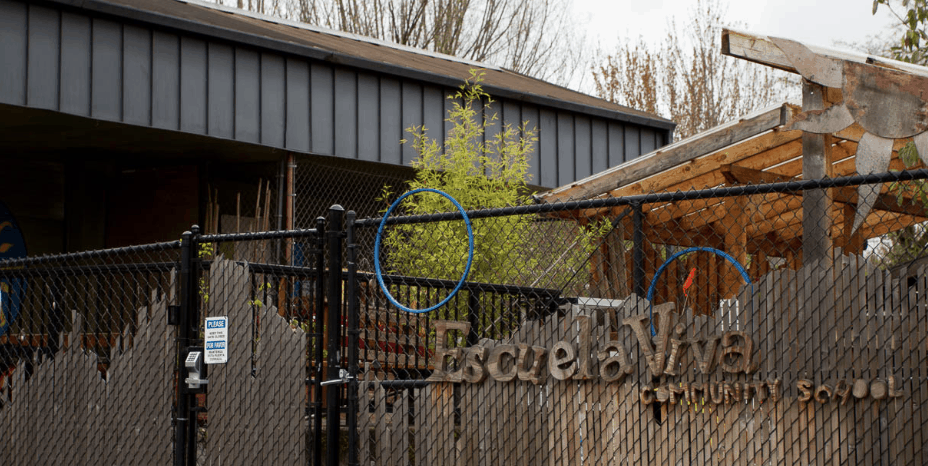Note: The Small Business Administration announced Thursday morning that the $349 billion fund for the Paycheck Protection Program referenced in this post has run out. Talks are underway about adding more funding.
As financial assistance programs roll out to small businesses across the country in response to the COVID-19 pandemic, early care and education providers in Oregon are reporting long waits and sometimes confusing guidance as they attempt to save their programs from permanent closure.
In addition to federal aid like the Paycheck Protection Program, a range of city, state, and nonprofit loans and grants are being offered to small businesses, often with separate application processes and documentation requirements.
While help is welcome and urgently needed, early childhood care and education providers are anxious about delays in response and follow up on applications they rushed to file as the COVID-19 pandemic shuttered their programs with little warning. That’s similar to the experience businesses have had in many other industries.
But advocates and providers point out that the integral role that child care plays in supporting frontline workers now and in future economic recovery efforts should elevate their status in relief efforts.
Not Just Another Small Business
In an email, Sahra Alizadeh, owner of Sweet River Bamboo Preschool and Nursery in Northeast Portland wrote, “Child care should not be clumped with other small businesses. This industry needs its own line of support with direct liaisons to funding, information, and support. We need to be treated like the essential service that we are.”
Alizadeh also noted that smaller family and home-based programs are especially vulnerable, given their reduced administrative and resource capacity to gather required documentation or navigate varying application requirements and systems.
Even before the SBA funding ran out, many lenders were so overwhelmed by demand that they had already stopped accepting new applications or were restricting them to existing customers with commercial accounts. One child care provider reported having to contact five different banks before she found one that would accept her Paycheck Protection Program application. Another reported that she was confused about whether applying for Prosper Portland’s relief fund would violate another program’s rule against “double dipping.”
Weighing the Risks of Emergency Care
Oregon’s closure of schools and businesses included most child care and preschool programs, with the exception of those providing emergency care for children of essential workers and first responders. Adding to providers’ stress is weighing the financial and health risks for themselves and their staff if they answer the call to serve as emergency providers. To do so requires an additional application filing to Oregon’s Early Learning Division. Operating as an emergency care provider does not guarantee that enrollment will be high enough to cover operational costs, which may be higher due to additional health and safety measures in place.
Overall demand for child care cratered when Governor Kate Brown ordered non-essential businesses to close in March. On Tuesday, the governor outlined a framework for lifting COVID-19 restrictions, but could not commit to a firm date for the state’s return to business as usual.
That leaves providers flying blind as they navigate through a cloud of economic uncertainty.

Kassie Krauciunas with students at Portland Preschool in Southeast Portland
“Everything is feeling like a huge gamble right now,” reported Kassandra Krauciunas, owner of Portland Preschool in Southeast Portland. “I need to decide to stick it out, or pull out before I lose more money. I cannot afford my rent and utilities on my own without income.”
Growing Advocacy Efforts
Advocacy efforts for early care and education providers and workers have gained some traction. On Monday, Oregon Representative Suzanne Bonamici, Senator Jeff Merkley, and Senator Ron Wyden called for Congressional leaders to provide $50 billion for child care.
“Parents in Oregon can’t return to work without child care, but availability will be severely impacted if we can’t find a way to throw a lifeline to providers,” said Dana Hepper, Policy and Advocacy Director at Children’s Institute. “It makes sense to preserve the programs that are already in existence and not able to operate through no fault of their own.”
A survey of Oregon child care providers from the National Association for the Education of Young Children reported that one in four could not survive a closure of more than two weeks without financial support. One out of five reported that they could not survive a closure of any length.
For now, providers continue to wait and worry.

Escuela Viva has two locations, one in Southeast Portland and another in the Kenton neighborhood.
Angie Garcia, Program Director for Escuela Viva, shared concerns about her staff. “I am anxious to hire back all of my staff and get them back to work. They are worried and scared. Only a couple…have received a check from [unemployment insurance]. There are lots of barriers to staff getting the money they need to pay their bills.”
You can make an impact!
We know you care about young children and their families in Oregon. Turn your caring into action. Your tax deductible contribution allows us to continue our outreach to communities across Oregon impacted by the COVID-19 pandemic. Your generous donation makes a difference!
